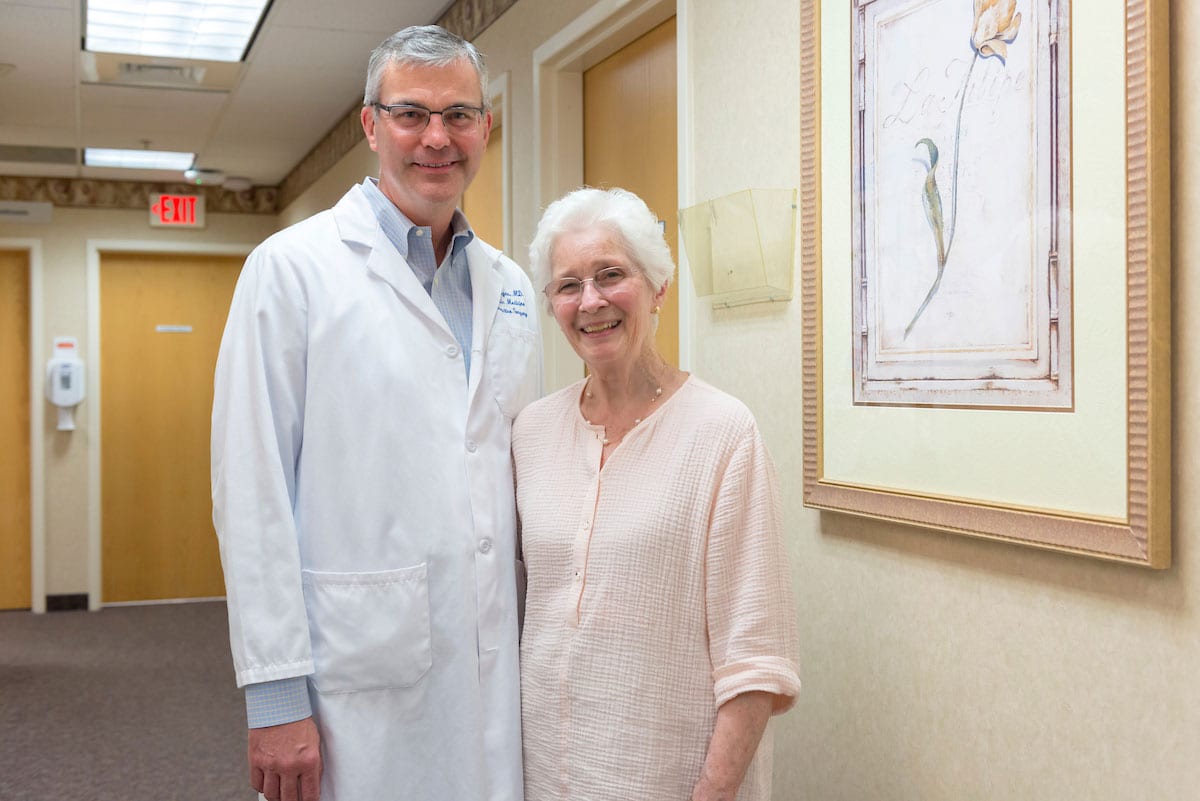Like many women, Susan Edgerly figured out a way to manage symptoms that made simply urinating an acrobatic challenge until two of her doctors urged her to see a specialist.
At 78, the Kent antiques dealer had felt an unnatural bulge from her vagina for several years and her gynecologist told her she would eventually want or need surgery to secure the organs — her bladder, rectum and uterus — back into place.
Pelvic organ prolapse like Edgerly’s is not unusual. In fact, 13 percent of women experience some form of prolapse in their lifetime, mostly due to a weakening or stretching of the muscle and connective tissue that supports the bladder, uterus and rectum.
“There was no pain, but, eventually, I had to push up on the bulge in order to urinate,” she says. “I didn’t realize the extent of the prolapse until I began to urinate whenever I moved my bowels.”
Her gynecologist and primary care doctors referred her to Dr. Paul Tulikangas, who is board-certified in female pelvic medicine and reconstructive surgery with the Hartford HealthCare Tallwood Urology & Kidney Institute. Dr. Tulikangas, in fact, recently led a group that created the national guideline on treatment of pelvic organ prolapse.
She almost didn’t make the first appointment because 90 minutes seemed like a long way to travel for a doctor’s appointment for someone who admittedly “rarely leaves my little village.”
“I thought, ‘That is so far away!’” she says. “But the doctors said, ‘You should consider going to the best and the other things can be worked out.’ So I did.”
Dr. Tulikangas — who, with his group, are experts in repairing pelvic organ prolapsed through minimally-invasive techniques — repaired her injured pelvic floor muscles in a three-hour procedure done with sutures and her own connective tissue.
“I just kept smiling for the first two weeks!” she said of the results.
Since the surgery in February 2018, Edgerly said she feels free from bathroom concerns and able to more completely focus on buying the Ironstone, wood and apothecary pieces she sells in her shop, Main Street Antiques, creating tableaus in the shop and even doing the paperwork the “old-fashioned” way in ledger-like notebooks.
“Dr. Tulikangas was just wonderful” she says. “His manner, his choice of words, the way he listens to me. He’s just very warm. I couldn’t be happier.”
For more information on pelvic organ prolapse from Tallwood Urology & Kidney Institute, click here.

